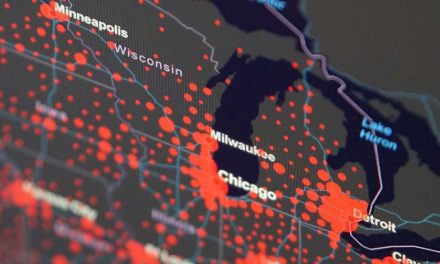
The U.S. Department of Health and Human Services (HHS) Office of Minority Health (OMH) awarded $4 million to the City of Milwaukee’s Office of African American Affairs.
The funding is a part of a $250 million two-year initiative to identify and implement best practices for improving health literacy to enhance COVID-19 vaccination and other mitigation practices among underserved populations. The Advancing Health Literacy (AHL) to Enhance Equitable Community Responses to COVID-19 initiative is part of the Biden/Harris Administration’s National Strategy for the COVID-19 Response and Pandemic Preparedness.
“The Advancing Health Literacy initiative is a vital part of the HHS efforts to help communities hardest hit by the pandemic access and understand COVID-related information,” said Assistant Secretary for Health, Dr. Rachel L. Levine, M.D. “This funding, and the partnerships with local and community entities across the country, will help our national efforts to continue to tackle health disparities surrounding COVID-19 vaccination, testing, and treatment.”
Health literacy is a person’s ability to find, understand and use information and services to help them make health-related decisions for themselves and others. Health literacy is a central focus of the Healthy People 2030 blueprint for improving the health of the nation, which is sponsored by the HHS Office of the Assistant Secretary for Health. Healthy People 2030 has elevated health literacy within one of its overarching goals: Eliminate health disparities, achieve health equity, and attain health literacy to improve the health and well-being of all.
“In Milwaukee, the COVID-19 pandemic exposed significant racial inequities, with the disease disproportionately affecting our communities of color,” Milwaukee Mayor Tom Barrett said. “It is a crisis that requires prompt and thorough action, and this grant is a good step forward in that work.”
Over the next two years, the Office of African American Affairs will work with local community-based organizations to develop a health literacy plan to increase the availability, acceptability, and use of COVID-19 public health information and services by racial and ethnic minority populations.
“COVID-19 highlights the importance of health literacy, of understanding public health measures and taking steps to protect ourselves, our families, and our communities,” said Deputy Assistant Secretary for Minority Health, RADM Felicia Collins, M.D. “Our new health literacy initiative will help local governments enhance their health literacy efforts to reduce COVID-related disparities within racial and ethnic minority populations and other vulnerable communities.”
The projects will also focus on other populations considered vulnerable for not receiving and using COVID-19 public health information. Recipients are also expected to leverage local data to identify racial and ethnic minority populations at the highest risk for health disparities and low health literacy, as well as populations not currently reached through existing public health campaigns.















